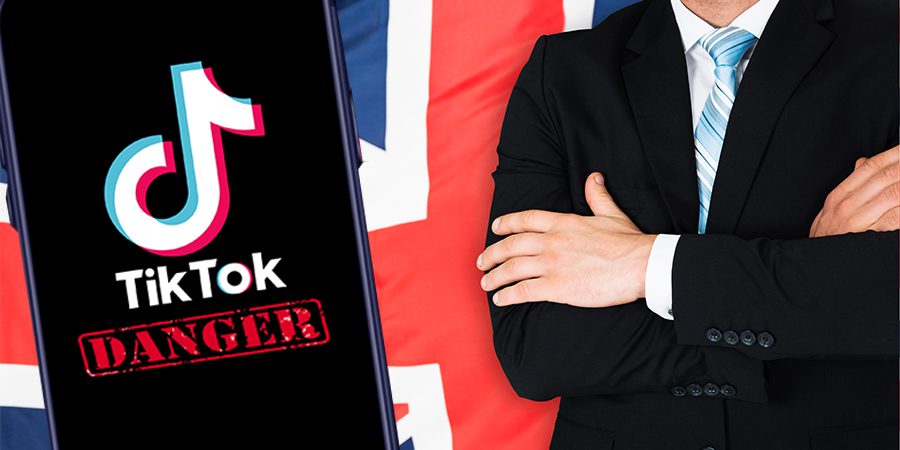Subscribe
"Unlock exclusive insights and elevate your financial wisdom with NetWorth.com — subscribe now to stay ahead in the wealth game!"

In this article, we’ll explore the recent decision by the United Kingdom to ban Chinese-owned video app TikTok on government corporate devices.
We’ll also look at the reasons behind this decision, the exemptions in place, and the reactions from TikTok.
Key takeaways:
The United Kingdom has announced its decision to ban Chinese-owned social media platform TikTok on government devices.
This move follows similar actions taken by the United States and the European Union.
Cabinet Office Minister Oliver Dowden explained that the ban comes after a review by British cybersecurity experts.
The review concluded that apps like TikTok, which collect vast amounts of user data, could pose a risk to sensitive government data. Dowden emphasized the importance of prioritizing the security of such information.
As a result, the UK has decided to immediately ban TikTok on government devices. Dowden clarified that this action is precautionary and will not apply to personal devices belonging to government employees.
He described the decision as proportionate and based on specific risks associated with government devices.
The UK government will grant exemptions for using TikTok on government devices on a case-by-case basis, with necessary security measures in place.
Additionally, government devices will only have access to third-party apps that have been pre-approved, further ensuring data security.
A spokesperson for TikTok expressed disappointment with the UK government’s decision, claiming that the ban is based on misconceptions and influenced by broader geopolitics.
The spokesperson highlighted that the company is committed to working with the government to address any concerns and believes it should be treated equally to its competitors.
TikTok has already implemented a comprehensive plan to improve data protection for European users, including storing UK user data in European data centers and strengthening data access controls.
The UK’s decision comes after the US and EU implemented similar restrictions on TikTok usage on government devices.
In February, the White House directed government agencies to ensure the removal of TikTok from federal devices within 30 days.
The European Commission has also prohibited employees from installing TikTok on both corporate and personal devices.
US lawmakers have consistently expressed concerns about the potential for American user data to be sent to the Chinese government.
In response, TikTok has taken measures such as partnering with US firm Oracle to store all US data by default on Oracle’s cloud.
As scrutiny on TikTok continues to intensify, the social media platform faces mounting global pressure.
The US Committee on Foreign Investment in the United States (CFIUS) has urged ByteDance, TikTok’s parent company, to sell its shares in TikTok, warning that the app could be banned in the US otherwise.
A potential ban would significantly impact TikTok’s access to the massive American market.
The UK has recently joined other countries in prohibiting TikTok on government equipment.
Oliver Dowden, the Chancellor of the Duchy of Lancaster, declared that the ban is in place at once, emphasizing that the main objective is to safeguard confidential state data.
The UK’s ban, however, does not extend to the personal devices of government employees, ministers, or the general public.
Individuals are advised to familiarize themselves with each social media platform’s data policies before downloading and using them.
The government added that exceptions might be granted, but only after undergoing an approval process with security teams and on a case-by-case basis.
The ban in the UK follows similar actions in the US and Canada, where TikTok has already been banned from government devices.
Furthermore, the US is currently demanding that Chinese stakeholders divest their shares in TikTok to avoid a possible nationwide ban.
A representative from TikTok countered that divestment wouldn’t resolve the problem, stating that altering ownership wouldn’t introduce additional limitations on data transmission or accessibility.
The UK’s recent decision to ban TikTok on government devices highlights the growing global concern surrounding data privacy and security.
Governments are taking steps to safeguard sensitive information by limiting the use of apps that could pose potential risks.
While the ban does not affect personal devices, it serves as a reminder for individuals to be cautious about their digital footprint and the apps they choose to use.
Awareness of each platform’s data policies is crucial in making informed decisions about which apps to download and engage with.
As more countries impose restrictions on TikTok, the company faces the challenge of adapting to increasing scrutiny and addressing concerns about data security.
It remains to be seen whether these bans will impact TikTok’s overall user base and market presence in the long run.
The United Kingdom’s decision to ban TikTok on government devices highlights the growing global focus on data security.
The ban follows similar measures taken in the US and Canada and serves as a reminder for individuals to remain vigilant about the apps they use and their data privacy.
The ongoing developments surrounding TikTok may have long-term implications for the company’s growth and market position.